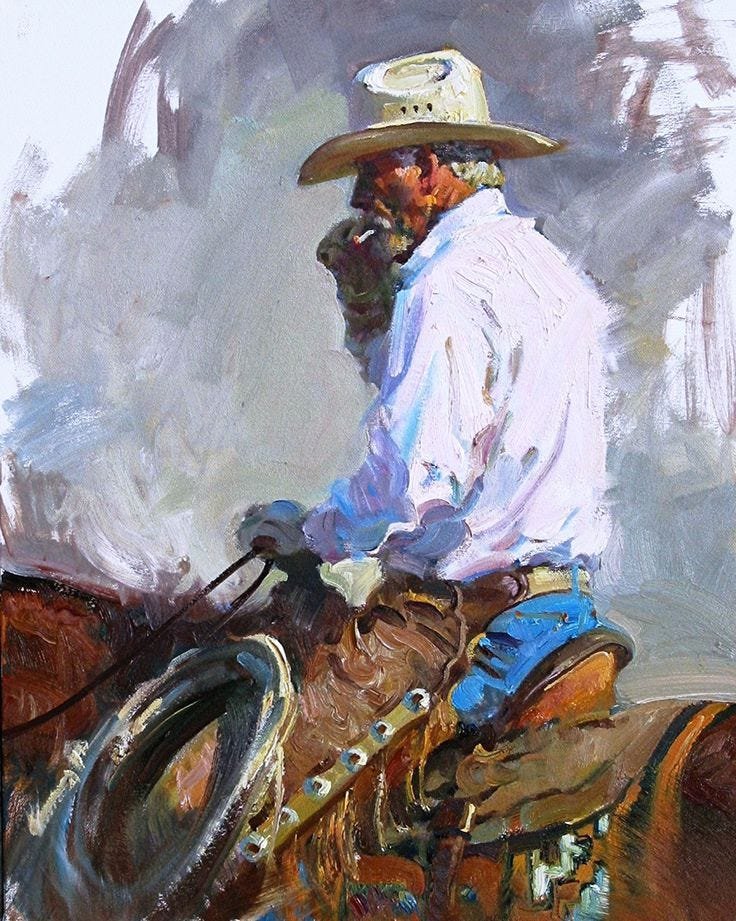Verbal Portrait No. 7
Where wilt thou find a cavern dark enough
To mask thy monstrous visage? Seek none, conspiracy;
Hide it in smiles and affability.
In earlier posts, I have explored the idea of verbal portraiture. Verbal Portrait No. 1 and Verbal Portrait No. 2 describe a bookish lady and a troubled writer, respectively.
I encourage you to read the above portraits in full for proper context on this style, however, I empathize with the there-aren’t-enough-hours-in-the-day crowd. Below is an excerpt that briefly explains my angle and aim:
From vivid descriptions of my most minute observations, I attempted to create a coherent verbal “image.” Like the pointillistic brushstrokes of Seurat, my words would obfuscate if read individually, but render clarity when taken as a whole. Hence, the idea of verbal portraiture was born.
A Verbal Portrait is a specific, hyper-detailed description of the reality an individual sees in front of him/her.
Verbal Portrait of an Old Gunslinger
He stood tall; six foot two inches to be exact.
He had the long, sinewy limbs of a natural athlete. Even when dressed in a stiff, blocky suit, like a door-to-door salesman, he seemed to have sprung from a mythic age.
His eyes were dark wells that burned with an entire history.
He talked like he looked and shot: right on target.
His posture resembled his morals: upright and unflinching. The old, worn compass that rested in his pocket only had two directions: Right and Wrong.
He was not the kind of man to ask you to do something, he told you.
He had a gentle voice and a quiet manner, but behind his twinkling grey eyes lay a capacity for furious wrath and reprobate scorn, each ever more dangerous because they were in close communion.
He suffered neither fools nor had mercy for incompetence. Both could wreck you out here.
In his care was a dusty patch of earth, a place where the dregs of civilization mixed with the harsh scum of the wild. It had boomed once, teeming with life, but that seemed ages ago.
He saw the law as a struggle to subdue the violent passions, not only others, but also himself. He held that leaden yolk on his shoulders; it was heavy and it showed in the wrinkles, pockmarks, and jowls that hung from a face that had done more scowling than smiling.
The sole sheriff for miles, he was the only circus in town and attracted all the clowns, buffoons, and oddballs in the vicinity.
He was burdened by a stain-speckled past, because those in his line of work didn’t plant crops in the ground, but rather men.
He knew he’d see those men again, when he traded the red clay and adobe for orange hellfire. For he came from the red dust and to that same dust he would eventually return.
